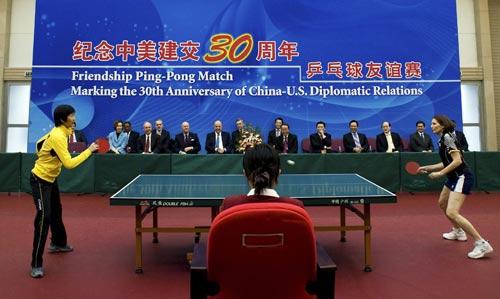Title: The Role of English in Sports Diplomacy
In the realm of sports diplomacy, the English language serves as a crucial tool for communication, collaboration, and the promotion of international understanding. This article explores the significance of English in sports diplomacy, its impact on various stakeholders, and offers guidance on leveraging language effectively in this context.
Introduction to Sports Diplomacy:
Sports diplomacy refers to the use of sports as a means to foster positive relationships between nations, promote cultural exchange, and address global issues. It capitalizes on the universal appeal of sports to transcend political, cultural, and linguistic barriers.
The Role of English:
1.
Global Lingua Franca:
English enjoys unparalleled dominance as the lingua franca of international communication, including sports. Its widespread usage facilitates seamless interactions among athletes, coaches, officials, and spectators from diverse linguistic backgrounds.
2.
Media Coverage:
English serves as the primary language of sports broadcasting, journalism, and commentary worldwide. It enables the dissemination of sporting events to a global audience, enhancing their reach and impact.
3.
International Events:
Major international sports events, such as the Olympics and FIFA World Cup, predominantly employ English as the official language for logistical coordination, rule enforcement, and promotional activities.
4.
Diplomatic Relations:
English proficiency is often a prerequisite for diplomats, government officials, and sports administrators involved in negotiations, agreements, and collaborations within the realm of sports diplomacy.
Implications and Benefits:
1.
Enhanced Communication:
English proficiency facilitates effective communication and understanding among stakeholders, thereby minimizing misunderstandings and conflicts.
2.
Cultural Exchange:
Through Englishmediated interactions, athletes and participants have opportunities to exchange cultural insights, values, and traditions, fostering mutual respect and appreciation.
3.
Global Visibility:
English language proficiency enhances the visibility and marketability of athletes, teams, and sporting events on the international stage, attracting sponsors, fans, and investment.
4.
Soft Power Projection:
Nations proficient in English can leverage their linguistic capabilities to enhance their soft power, exert influence, and shape perceptions on global sports platforms.

Guidelines for Effective Language Utilization:
1.
Language Training:
Invest in English language training programs for athletes, coaches, and sports officials to improve their proficiency and confidence in communicating on the international stage.
2.
Cultural Sensitivity:
Emphasize cultural sensitivity and awareness alongside language proficiency to navigate crosscultural interactions respectfully and effectively.
3.
Interpretation Services:
Provide professional interpretation services during international sporting events to ensure accurate communication and facilitate inclusivity for nonEnglishspeaking participants.
4.
Strategic Communication:
Develop strategic communication plans that prioritize English language channels for promoting sports diplomacy initiatives, reaching global audiences, and engaging with international stakeholders.
Conclusion:
English plays a pivotal role in facilitating effective communication, fostering cultural exchange, and enhancing global engagement within the realm of sports diplomacy. By recognizing the significance of language proficiency and implementing strategic measures, stakeholders can maximize the positive impact of sports as a vehicle for international cooperation and understanding.
[End of Article]

